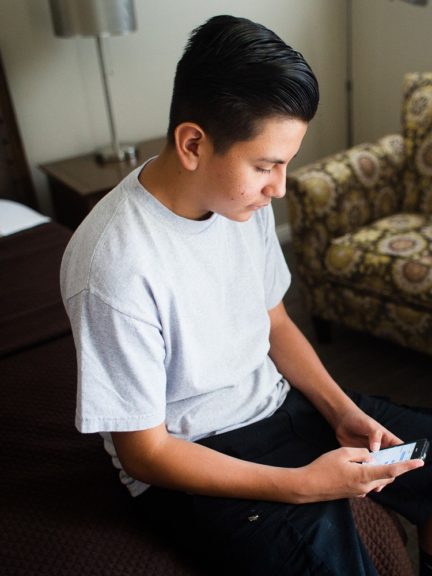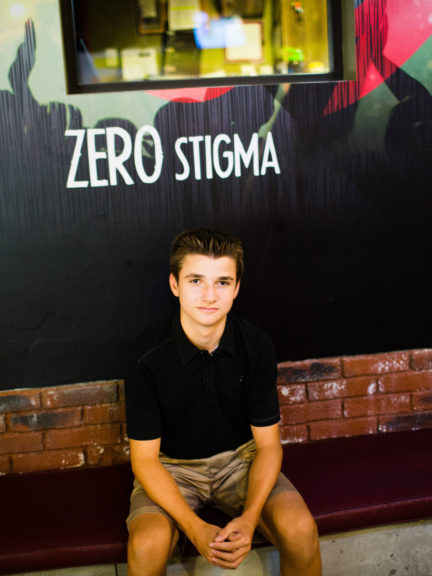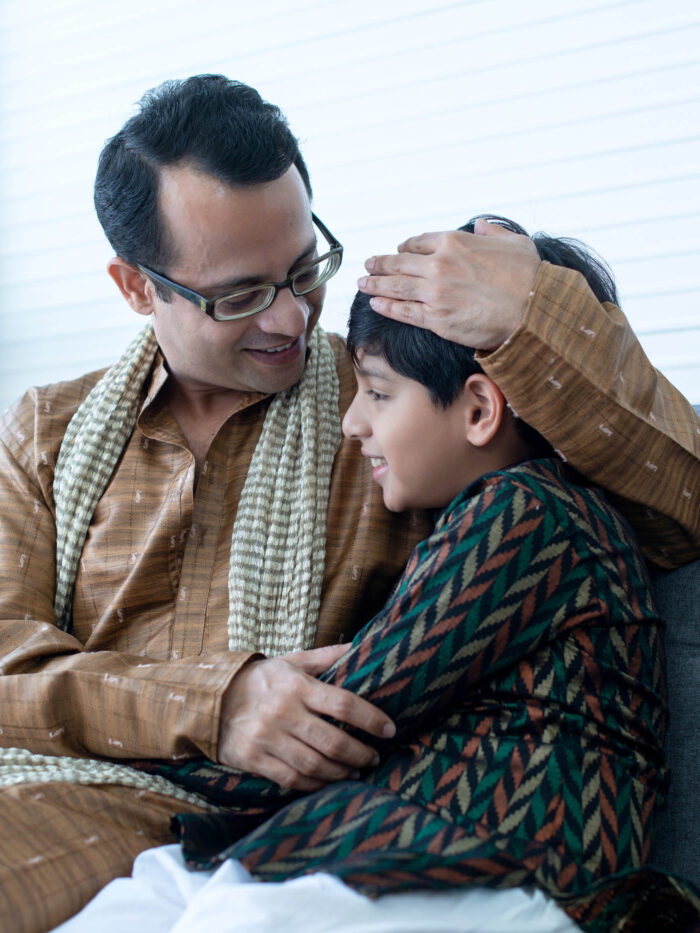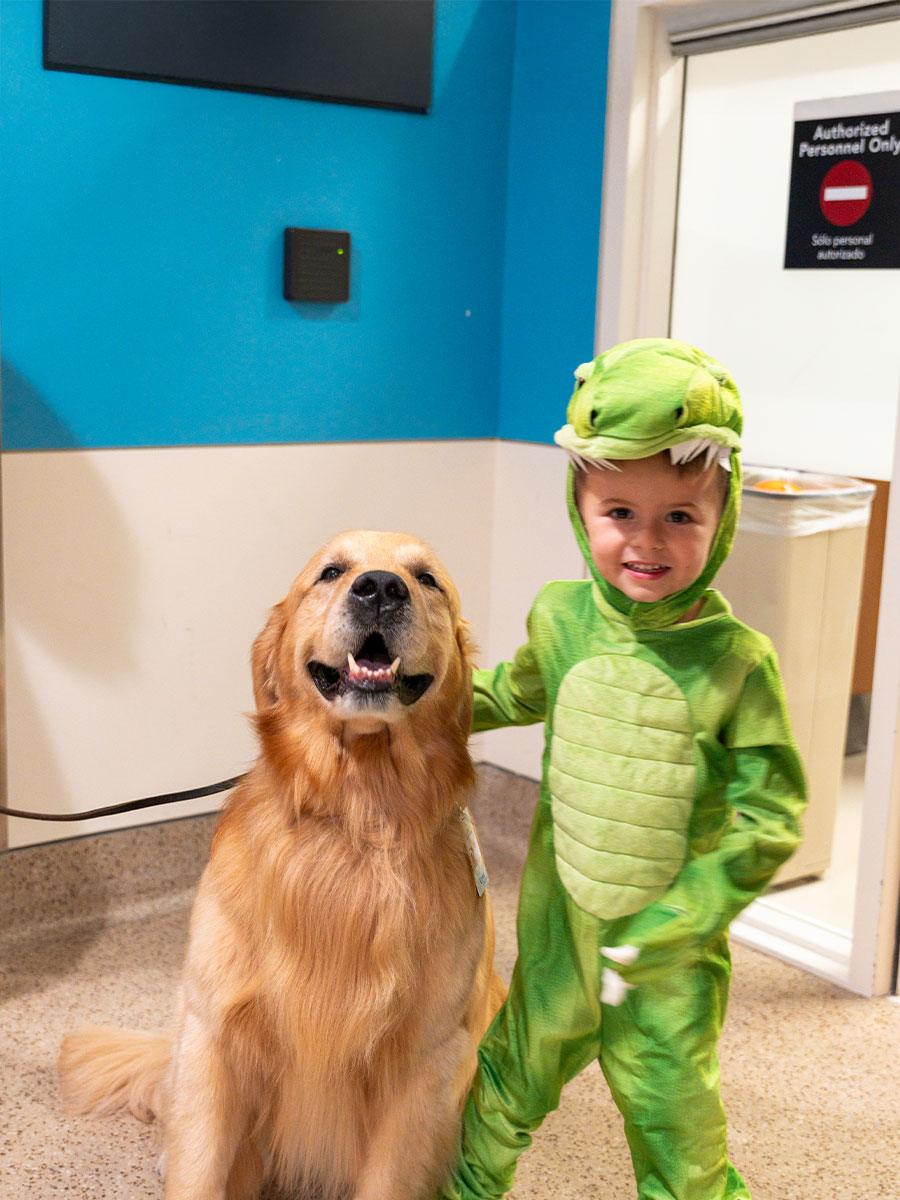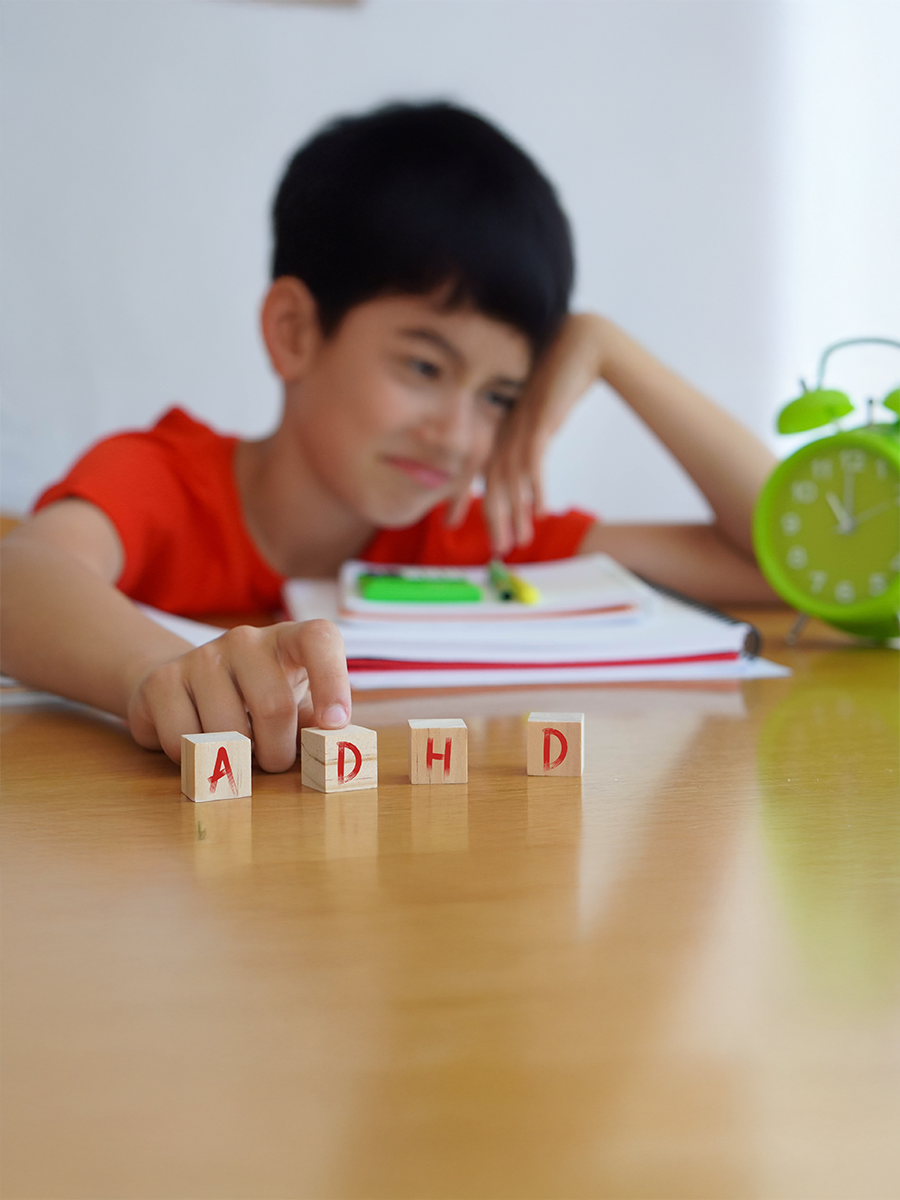MENTAL HEALTH GUIDE
Types of Mental Health Treatment
Mental health treatment can help a person address and manage symptoms related to mental health conditions such as anxiety, depression, ADHD and Post Traumatic Stress Disorder. There are a variety of mental health services such as therapy, support groups and psychiatric services available. The type of mental health treatment you seek for your child or teen will depend on a number of factors such as the symptoms they are experiencing, the frequency of their symptoms, their age and specific needs. The services listed are the most commonly used/provided mental health services. There may be others that your provider or insurance may recommend for your child.
Crisis Resources
If your child expresses thoughts of wanting to harm themselves or others,
call 9-1-1 or visit the nearest emergency department.
To reach the Crisis Text Line, text HOME to 741-741 or visit crisistextline.org.
To reach the National Suicide Prevention Lifeline, call 9-8-8 or visit 988lifeline.org.
Learn more about CHOC’s pediatric mental health services
At CHOC, we specialize in providing a full spectrum of pediatric mental healthcare, including inpatient, intensive outpatient and outpatient program services.
Get 24/7 advice from CHOC
Mental Health Treatment Overview
Mental health treatment and services provided can vary depending on your child’s symptoms, behaviors and needs. Below are some ways to determine if your child’s symptoms and behavior warrant seeking mental health treatment and the various types of services you can access.
What are the different types of mental health services available to my child/teen?
There are several types of mental health services that teens and children can access. The types of services available to a child or teen depend on that child/teen’s symptoms, behaviors and needs.
Here are some of the most common mental health services accessed by children and teens:
- Outpatient mental health services – this type of therapy is offered at a provider’s office and can include individual, family, and couple’s therapy. This therapy typically addresses mental health conditions that are mild to moderate in symptom severity. Outpatient therapy can be provided weekly, bi-weekly or monthly depending on the child/teen’s need.
- Group therapy – here, the child or teen meets with other children/teens that may be experiencing similar mental health symptoms to discuss their mental health condition(s) and find ways to cope with or to improve the symptoms. The group is typically led by one or more mental health providers that can guide the group discussions and interventions for the children/teens. The group typically meets at a provider’s office, or agency that provides mental health resources.
- Intensive Outpatient Programs (IOP) – are intensive treatment programs used to address higher need mental health conditions/symptoms such as depression, suicidal ideation/past suicide attempts, eating disorders, or substance use that do not require detoxification or round-the-clock supervision. This type of treatment may require that your child attend daily or almost daily therapy services. Whereas residential treatment requires that clients reside on site, clients in intensive outpatient programs live at home.
- Partial Hospitalization Programs (PHP) – A Partial Hospitalization Program is a structured mental health treatment program that typically serves patients who are experiencing more severe mental health symptoms such as suicidal ideation, self-harm and/or past attempts to commit suicide. These programs usually run for several hours each day, three to five days per week. The child or teen participates in the scheduled treatment sessions during the day and returns home at night. These types of programs are a step down from 24-hour care in a psychiatric hospital setting (inpatient treatment). Partial Hospitalization Programs can also be used to prevent the need for an inpatient hospital stay.
- Mental Health Inpatient Services – Inpatient mental health services typically occur in a clinic or hospital setting. A patient receiving inpatient services will stay in the clinic or hospital to receive intensive mental health services, such as individual, family and group therapy to help the patient address his/her/their mental health symptoms. Typically, inpatient services will be provided to patients who are experiencing severe mental health symptoms such as self-harm, recent suicide attempt, persistent suicidal or homicidal ideation. Typically, once the patient’s severe symptoms have been addressed and the patient is able to cope with the mental health symptoms, the patient will be referred to step-down mental health services, such as a Partial Hospitalization Program.
 Print this section
Print this section
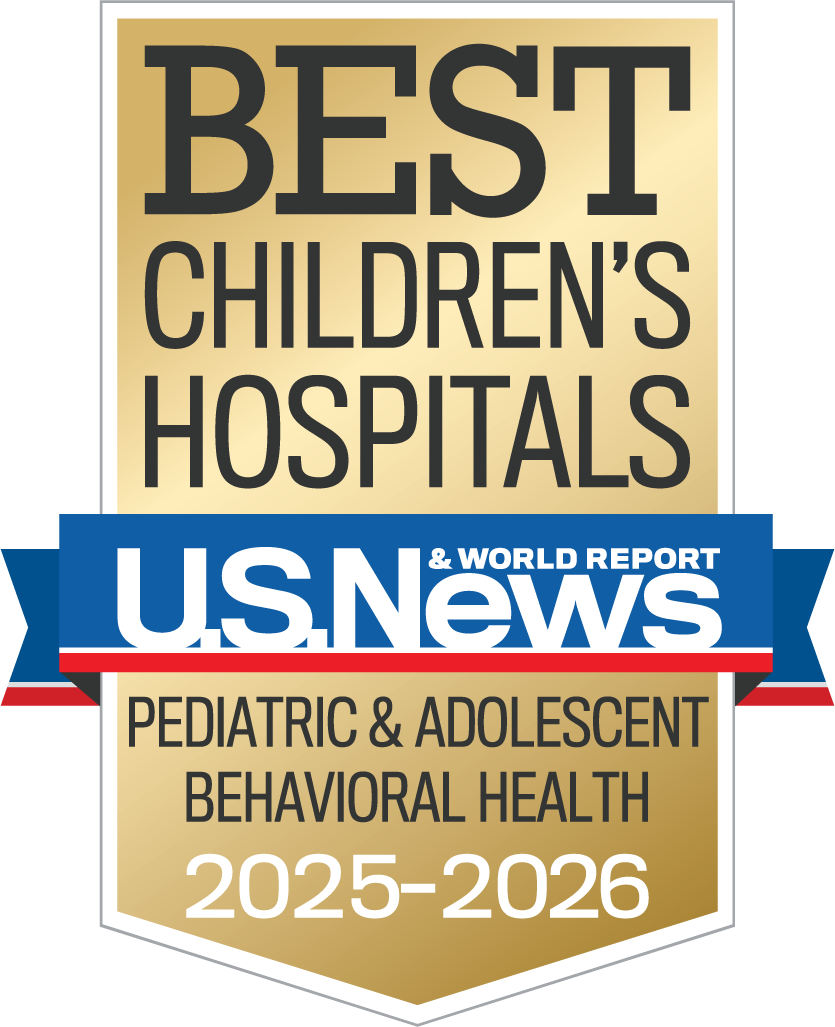
Learn more about CHOC’s Pediatric Mental Health Services
CHOC Hospital was named one of the nation’s best children’s hospitals by U.S. News & World Report in its 2024-25 Best Children’s Hospitals rankings and ranked in the behavioral health specialty.
When should I seek professional help for my child?
Everyone experiences distress from time to time. Children and teenagers can go through spells where they seem very upset. However, people who struggle with a mental health disorder tend to experience distress more regularly and more strongly. When should you think about going to a professional for guidance? Below are a few characteristics that can help in figuring out the extent of your child/adolescent’s distress. Always seek immediate help if a child engages in unsafe behavior or talks about wanting to hurt him or herself or someone else.
Typical Distress
The upsetting symptoms should last a few hours or a few days.
- After a breakup your adolescent cries for a few days
- Complaining of a stomachache after eating too much ice cream
- Has a temper tantrum when they are tired
Persistent distress that may require professional guidance
The upsetting symptoms should last a few hours or a few days.
- Crying regularly without knowing why
- Complaining about frequent stomach aches or headaches with no known medical cause that keeps them from attending school
- Has frequent tantrums or are intensely irritable much of the time
- If your child is (consistently) not meeting the milestones for his or her age or you feel there could be a problem with their development
Typical Distress
Difficulties take place in one setting (school, home, friends, community).
- Before a test/presentation you get the feeling of butterflies in your stomach (school)
- Misbehaves at home but follows the rules at school
Pervasive distress that may require professional guidance
Difficulties take place in more than one setting (school, home, friends, community).
- After a “poor” grade on exam, feeling worthless or hopeless all the time (school, home, friends) and not engaging in regular activities
- Doesn’t like to eat at parties and at school for fear of gaining weight
- Throws severe tantrums at home and at preschool
Typical Distress
Generally, your child is doing well across most settings (such as school, friends, family relationships, work).
- Feels betrayed by a friend; however, continues to hang out with the family, school performance stays the same
- Is usually a good student but experienced a recent decline in grades due to a change in teachers
- Has a few friends in the neighborhood and one friend at school but hangs out with family
Distress that interferes with normal functioning and may require professional guidance
Symptoms get in the way of everyday life (such as school, friends, family relationships, work).
- Is spending more and more time alone, and avoid social activities with friends or family
- Has lost interest in activities that they used to enjoy doing
- Is not interested in playing with other children or has difficulty making friends
- Is experimenting/engaging in alcohol or drug use and is not engaged with family/friends or shows a decrease in school or job achievement
 Print this section
Print this section

Types of Mental Health Professionals
Mental health services can be rendered by a variety of providers. Commonly, mental health services, such as therapy, are provided by clinicians such as psychologists, social workers, marriage and family therapists, and/or licensed professional clinical counselors. Psychiatric services are commonly provided by medical practitioners.
Psychiatrist
Psychiatrists have chosen to specialize in the branch of medicine focused on mental health. A psychiatrist treats patients by prescribing medication (if needed) and can provide psychotherapy (talk treatment) as well. Psychiatrists have an MD degree (Doctor of Medicine) or DO (Doctor of Osteopathy). They attend medical school (4 years) and complete specialty training in psychiatry (3 years for adult psychiatry and 2 more years for child/adolescent specialty). Look for a board-certified psychiatrist, this means they have passed specialized exams to show a specialty in this area.
Psychologist
A psychologist is qualified to administer and interpret neuropsychological or psychological tests and assessments that can help diagnose mental health conditions. They treat patients through psychotherapy (by talking with them) but they do not prescribe medication. They provide individual, group or family therapy. Psychologists have one of the following degrees: PhD (Doctor of Philosophy), or PsyD (Doctor of Psychology). They attend graduate school (4 to 6 years) and complete at least 2 to 3 additional years in specialized training. Look for a licensed psychologist who has passed national and state tests in the area.
Social Workers
Social workers treat patients with psychotherapy (by talking with them) and can provide individual, family, and group therapy. They may also provide case management and coordination of resources. Social Workers have the following degree: MSW. They go to graduate school for two years. To obtain Licensure (LCSW), they must complete a certain amount of additional supervised clinical hours, and receive a passing score on a national and state licensing examination.
Marriage and Family Therapist
Marriage and Family Therapists treat patients with psychotherapy (by talking with them) and can provide individual, group, and family therapy. Marriage and Family Therapists have the following degrees: MFT or MA. They go to graduate school for two years. To obtain Licensure (LMFT), they must complete a certain amount of additional supervised clinical hours, and receive a passing score on a state licensing examination.
Intern, Resident and Fellow
Provide services under the supervision of a Licensed Professional.
 Print this section
Print this section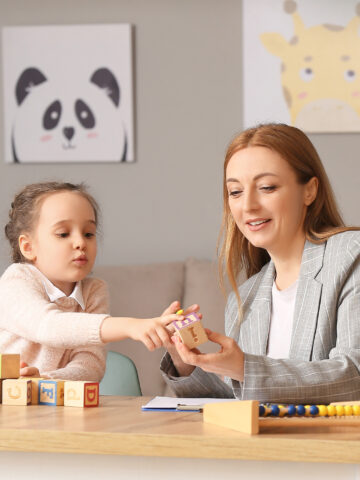
Finding Mental Health Treatment
Finding the right mental health support for your child or teen can be a critical step toward their overall well-being. Whether you are seeking help for your child or teen, understanding how to access mental health services can make the process less overwhelming. Here, we provide an overview of various resources and strategies to help you find a mental health provider who fits your family’s needs.
Start with Primary Care
You can start by reaching out to your child’s Primary Care Physician or Pediatrician, as they can often recommend trusted professionals. Additionally, Employee Assistance Programs (EAP) offered through your employer may be able to connect you with mental health services for your child or teen.
Finding Resources with Medi-Cal or without Insurance
For those accessing services through Medi-Cal or who are uninsured, you can find helpful mental health resources at community.choc.org.
Accessing Services with Commercial Insurance
If you have commercial insurance, here are some practical tips for accessing mental health care for your child or teen:
- Call multiple providers at once and request to be placed on waitlists rather than waiting for callbacks.
- Contact your insurance company directly and ask for a case manager who can assist in finding a therapist specializing in youth mental health.
- Visit your insurance provider’s website to search for in-network mental health professionals.
Understanding In-Network vs. Out-of-Network Providers
It’s important to understand the difference between in-network and out-of-network providers:
- In-network providers are contracted with your insurance company, billing your insurance directly. You may be responsible for co-pays or deductible payments.
- Out-of-network providers are not directly contracted with your insurance. If your plan includes out-of-network benefits (like PPO plans), you may need to pay upfront and seek reimbursement from your insurance company.
Helpful Websites for Finding Mental Health Providers
Helpful websites for finding mental health providers for children and teens include:
- Psychology Today – Find a therapist by entering your zip code.
- Aetna – Enter your zip code, enter or skip plan, select “Mental Health.”
- Anthem Blue Cross – Select plan, then select “Behavioral Health Resources” by plan.
- Blue Shield – Mental health resources by plan.
- Cigna – Enter zip code, select “Doctor by Type” and select “Behavioral Health Counselors.”
- HealthNet – Search behavioral health resources.
- United Healthcare – Search mental health service resources.
 Print this section
Print this section
Mental Health Medications
Frequently Asked Questions
Just like some people take medications for other medical conditions like Asthma or Diabetes, some people also benefit from medications for things like depressed moods or anxiety. Medications can help lessen or control symptoms to help children get back to normal activities like before their symptoms started. A lot of times, doctors will use medications combined with individual or family “talk” therapy, as the medications can help the child feel comfortable enough to engage in therapy to learn skills to manage the feelings.
What do the medications do?
We know that there are certain changes in the brain that are related to many mental health illnesses. There are medicines that can help fix those changes. The most commonly used medications are anti-depressants, which are sometimes referred to as “SSRIs”. These medicines work on specific ways the brain sends messages. For example, SSRIs work on something called serotonin. In depression, serotonin levels appear to be low, so these medications help raise serotonin up to higher, healthier levels. It takes a while for the brain to get back to using this new level. So there is usually a delay from when people start medications to when they start feeling better. That’s also why your doctor will likely recommend your child continue taking the medications even when they’re feeling better, as the brain may need some more time to get back to normal.
Will my child become addicted or dependent on medication?
Many parents worry about whether medications could lead their child to become addicted. Generally, medications that have a potential for addiction or dependency tend to be ones where there is a strong, immediate response. People become addicted because it makes them feel so good so fast. As you just learned, anti-depressants are not one of these medicines. This is a classic example of when slow and steady wins the race.
Medications (like SSRIs) are started at lower amounts and then increased slowly to help limit side effects and make sure your child isn’t getting more medication than they need. An increase in the dose doesn’t mean that your child is becoming addicted to the medication, it just means that they weren’t on a high enough dose yet, or what we call a “therapeutic dose”.
In some cases, your child’s doctor may suggest different medications to help your child’s symptoms. Some of these medications may have a potential for addiction but when used short-term and with proper supervision, they can be still be used safely. Your doctor will review all of this with you before starting any medicine, but be sure to ask any questions you may have.The good news is, there is the potential to eventually come off of the medication. Talk to your doctor about when that time might be for your child so that they can work with you to make sure it’s done safely (under the supervision of a professional and at the right time).
What about all the talk about medication making children suicidal?
You may hear that in some studies, some teens that were taking anti-depressants had more suicidal thoughts than teens who were not on anti-depressants. However, what we’ve found out over the years is that not treating depression can be even more dangerous. What this means is, if the doctor feels that your child’s depression is severe enough to require medications, they are likely already at high risk for suicidal thoughts. If they do come up, your child’s doctor will work with you to make the best plan to manage these thoughts.
What should I expect?
For the first two weeks of treatment, the main thing to watch for is side effects. Common side effects include stomach upset, nausea, headache, dizziness, change in appetite or sleepiness. Some side effects get better within the first week or so but may come back again for a short period of time if the amount of medicine is increased. If the medication makes your child dizzy or sleepy, generally we will recommend having them take it at bedtime.
Improvements tend to start gradually after a couple weeks. Sometimes parents will notice changes before the child is able to identify that they feel better. They may talk to the family more or get less upset about things. There will still be times that your child gets anxious (ex: big tests) but the anxiety may be less than it was before. Or even though they’re anxious they may be able to work through the anxiety better. If it’s been over a month and they’re not getting any better, it may mean that your child needs more medicine or needs a different medicine. Talk to your child’s doctor so they can help you figure out what will best help your child feel better.
 Print this section
Print this section
Learn more about CHOC’s Pediatric Mental Health Services
CHOC Hospital was named one of the nation’s best children’s hospitals by U.S. News & World Report in its 2024-25 Best Children’s Hospitals rankings and ranked in the behavioral health specialty.
Mental health recommended reading
 Print this section
Print this section
Related guides
For more information on other mental health conditions, please visit our other mental health guides.
Additional Resources
Mental health books
- Feeling Better: A Kid’s Book About Therapy, Rachel Rashkin, Bonnie Adamson
- My Book About Play Therapy, Sandra L Wilson
- Therapy and Counseling: Your Questions Answered (Q&A Health Guides), Christine Selby
- Some Bunny to Talk to: A Story About Going to Therapy, PhD Cheryl Sterling, PhD Paola Conte, PsyD Larissa Laba, Tiphanie Beeke
- When a Donut Goes to Therapy, Erin Winters and Kaitin Bucher
- Brave: A Teen Girl’s Guide to Beating Worry and Anxiety, Sissy Goff
Featured Resources
The guidance on this page has been clinically reviewed by CHOC pediatric experts.
For more health and wellness resources from the pediatric experts at CHOC:
Sign up for the Kids Health newsletter.
The contents of this webpage, including text, graphics, audio files, and videos (“Materials”), are for your general information only. The Materials are not intended to substitute qualified professional or medical advice, diagnoses, or treatments. CHOC does not recommend or endorse any specific tests, physicians, products, procedures, or other information that may be mentioned on or linked to this webpage. Always call your physician or another qualified health provider if you have any questions or problems. If you think you may have a medical emergency, call your doctor, go to the nearest emergency department, or call 911.
For more health information for your family visit health.choc.org

